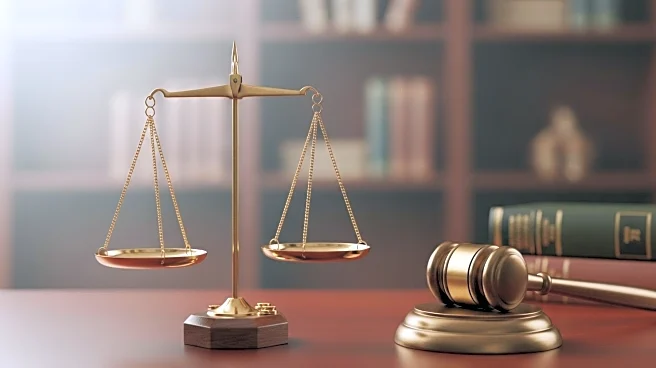What is the story about?
What's Happening?
Justice Sonia Sotomayor recently expressed her concerns about the legal education of certain politicians, particularly those with law degrees, during a speech at New York Law School. She remarked that when she hears lawyer-trained representatives advocating for the criminalization of free speech, she questions the effectiveness of their legal education. Her comments were perceived as a critique of politicians who, despite their legal backgrounds, appear to misunderstand or misrepresent constitutional principles. This sentiment was highlighted in the context of recent political rhetoric in Washington, D.C., where some officials have been calling for prosecutions related to free speech issues. Sotomayor's remarks also touched on broader concerns about civics education and the understanding of constitutional roles, such as the difference between a king and a president.
Why It's Important?
Justice Sotomayor's comments underscore a significant issue in American politics: the potential disconnect between legal education and the practical application of constitutional principles by those in power. Her critique suggests that some politicians may be using their legal knowledge to manipulate public perception or policy in ways that could undermine fundamental rights like free speech. This raises concerns about the integrity of legal education and the ethical responsibilities of those who hold law degrees. The broader implication is a potential erosion of public trust in both legal and political institutions if those in power are perceived as misusing their legal expertise for political gain.
What's Next?
The discourse initiated by Justice Sotomayor may prompt further discussions within legal and political circles about the role of legal education in shaping ethical and informed leaders. It could lead to calls for reforms in how law schools emphasize constitutional literacy and civic responsibility. Additionally, there may be increased scrutiny on politicians with legal backgrounds to ensure they uphold the principles they were trained to respect. This could also influence public expectations and demands for accountability from elected officials.
Beyond the Headlines
Justice Sotomayor's remarks highlight a deeper cultural and ethical issue within the legal profession and political landscape. The expectation that legal education should instill a respect for the rule of law and civic duty is being questioned. This situation reflects a broader societal challenge of ensuring that those in positions of power are not only knowledgeable but also committed to upholding democratic values. The conversation may also influence how future generations of lawyers are trained, potentially leading to a shift in educational priorities towards ethics and public service.

















